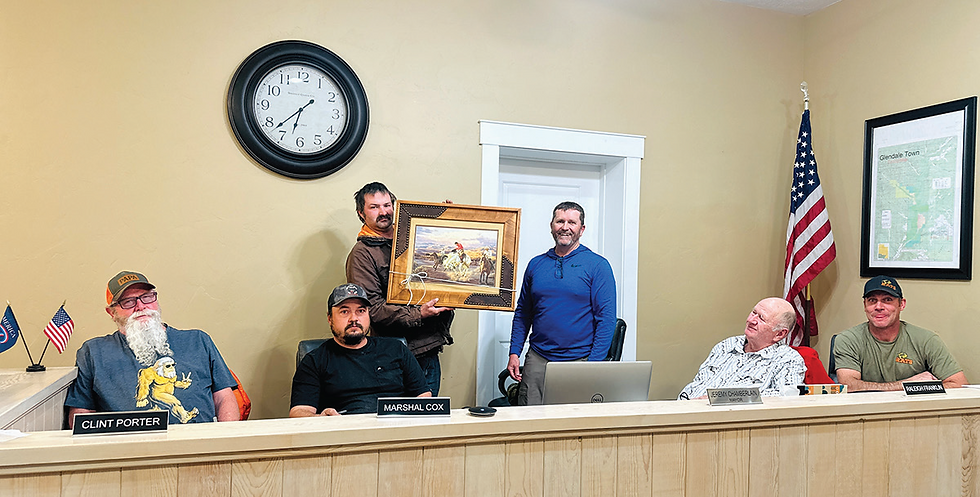One hundred and four wildlife illegally killed since August 1; how to help fight poaching in Utah
- Faith Heaton Jolley

- Sep 11, 2024
- 3 min read
Several hunting seasons are in full swing, and Utah’s general season rifle deer hunt - arguably the state’s most popular hunt - starts October 19. Utah Division of Wildlife Resources conservation officers are hard at work patrolling the state to protect wildlife and to make sure hunters are obeying the laws.

During this fall’s early hunts (from August 1 to September 9), conservation officers have contacted roughly 9,900 individuals and inspected the hunting and fishing licenses of approximately 3,600 people. During those interactions, the officers discovered 104 illegally killed animals, including:
• Nine deer
• Six elk
• Two moose
• One bear
• One pronghorn
• 60 fish
• 25 other protected wildlife
During that time frame, officers issued 849 citations, and they will continue to investigate other wildlife related violations detected, which are then turned over to the court system.
“Hunters need to take responsibility for knowing the law, having a current hunting or combination license and also knowing what species and areas their permits allow them to hunt before they go out into the field,” DWR Capt. Chad Bettridge said.
From August 1 to September 9, conservation officers have also received 201 tips through the various reporting tools, which are incredibly valuable in helping them investigate poaching cases. There are currently 53 DWR officers patrolling all of Utah, and they can’t be everywhere
“We need your help,” Bettridge said. “Please keep your eyes and ears open and report suspicious wildlife activity to us. With the information you share, we can enforce wildlife laws, which help with wildlife conservation and maintaining healthy populations and also keep our recreating public safe.”
While wildlife violations can happen any time of the year, there is typically an uptick during the fall hunting seasons. If you’d like to help in the fight against illegal hunting in Utah, here’s what you should do:
• Get a license plate number If you see someone who is potentially breaking Utah’s wildlife laws, getting a license plate number is the most critical piece of information you can provide to conservation officers. If you’re not able to get a license plate number, provide the officer with as much information as you can. “Having a license plate number will lead us to the individual, so we can interview the person and start investigating,” Bettridge said. “Other helpful details include the type and color of the vehicle the person was driving; how many people were involved and a description of what you saw. And, if you can give us a GPS coordinate, that can guide us quickly to the area where the possible violation occurred.”
• Don’t confront the individual Don’t confront someone who might be committing a violation; just observe from a distance and take note of as many details as you can. “We don’t want anyone to be put in harm’s way or to be in a situation that makes them uncomfortable,” Bettridge said. “Report what you saw and let us contact them.”
• Report the information to the DWR using one of their four channels. While reporting a wildlife violation in a Facebook message will eventually get to a conservation officer, it is much more efficient and effective to use the proper channels. Here are the various ways you can report illegal wildlife activities:
• Text officers at 847411.
• Call the Utah Turn-in-a-Poacher hotline at 1-800-662-3337. (The UTiP hotline is staffed 24 hours a day, seven days a week and is the quickest way to report a wildlife violation.)
• Use the UTDWR Law Enforcement app.
• Report online through the DWR website; however, contact with an officer may be limited with this option.
So far this year, officers have received 849 reports through the various channels.
Another option for reporting wildlife violations is to call the nearest local police dispatch, and they will pass the information along to the nearest conservation officer. Local police dispatch numbers can be found online. If you can’t locate those phone numbers, you could also call 911. However, you shouldn’t call the police unless you are absolutely sure you have witnessed a poaching violation, you can’t find the UTiP number, and you feel the incident must be reported immediately.
“If you have a license plate number but you can’t get cell reception, it’s totally fine to wait and report the incident when you get better cell service,” Bettridge said. “A license plate number gives us a great starting point for our investigation.”
Don’t call UTiP for information. Please remember that the UTiP hotline is not an information line. Only call it to report possible poaching and other wildlife related crimes.




